Over 20 years ago, Charlie Burrell and Isabella Tree decided to turn their unprofitable 1,400 hectare arable and dairy estate in West Sussex into a rewilding project, the first of its kind in the UK lowlands. A radical experiment, Knepp has since become synonymous with rewilding, known for its species introductions and biodiversity restoration, captured in the best-selling book Wilding, authored by Tree herself.
Their latest venture, led by estate co-owner (and Charlie’s son) Ned Burrell and his partner Lia Brazier, is a café, restaurant and shop with produce sourced from regenerative and organic producers and from Knepp itself.
The ‘Wilding Kitchen’, opening next week, also wants to be a hub for the community and to encourage visitors to connect with nature. The space that has been created for the kitchen is impressive to say the least, bounded by a landscaped courtyard designed by Knepp’s head gardener Charlie Harpur.
As one new element opens its doors, what is the future for Knepp more widely?
Interest in the Knepp project has grown over the past decade and thousands now visit the estate each year: walking, glamping, camping or attending one of the many courses or safari style tours. The landscape itself has been transformed and in terms of wildlife, populations of common species have rocketed, while numerous rare species have also established themselves.
Knepp is now a breeding hotspot for critically endangered nightingales and turtle doves. Peregrine falcons, ravens, red kites, sparrowhawks, skylarks and yellowhammers also breed on the site.
Other introductions could include water buffalo…and possibly bison one day. Isabella Tree, owner of Knepp Estate and author of Wilding.
The aim is very much to continue building biodiversity and during my visit to the estate, Tree tells me how they have done a feasibility study to introduce the red-backed shrike, a migratory bird species at risk of extinction. ‘’We would also like to bring back water voles and pine martens perhaps, to redress the balance between red and grey squirrels across the wider landscape and encourage red squirrels back to this area,” she says.
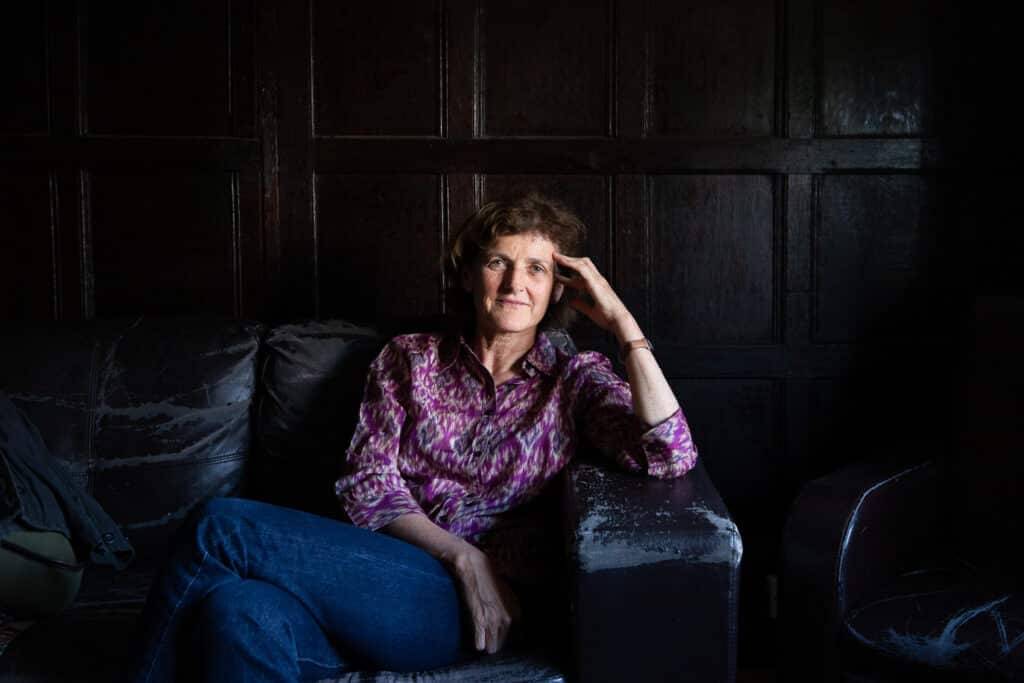
‘’Other introductions could include water buffalo,” she continues, “and possibly bison one day…wild boar would be wonderful to have.”
However, it is not their intention to grow the tourism business significantly. “It feels personal and of the scale of an African safari camp,” says Tree. “For the people who stay here it feels quite special; and we don’t want to lose that by getting too big. It’s also important that we don’t impact the wildlife.”
Knepp has also evolved over time from a food-producing estate to one producing nature. As Tree puts it: “We are not farming any more. We are producing nature and providing all sorts of public goods from flood mitigation to water purification, soil restoration and biodiversity.’’
We really want to have a strong relationship with farmers around us to show how we are their natural ally. Isabella Tree, owner of Knepp Estate and author of Wilding.
While no longer a core focus, food certainly remains part of the Knepp offering, as demonstrated by the new kitchen opening. Free ranging across the estate are Longhorn cattle, Tamworth pigs and red and fallow deer. Together these make up the ‘wild-range meat’ selection that will be served in the restaurant alongside foraged ingredients from the rewilding project.
Knepp’s market garden, led by Signe Jensen and Rosanna Catterall, also feeds into the restaurant and has become a core part of the Knepp family of enterprises.
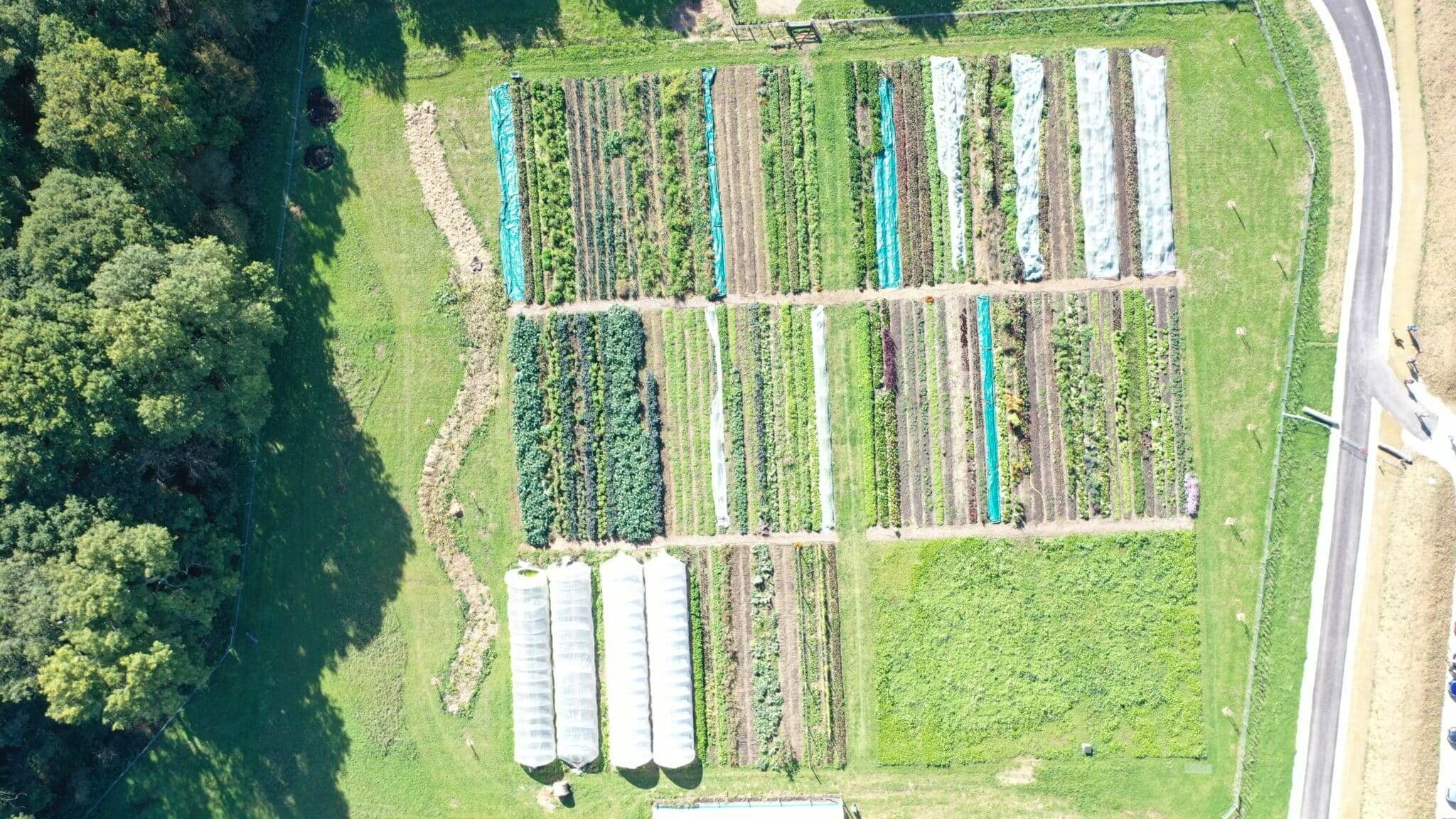
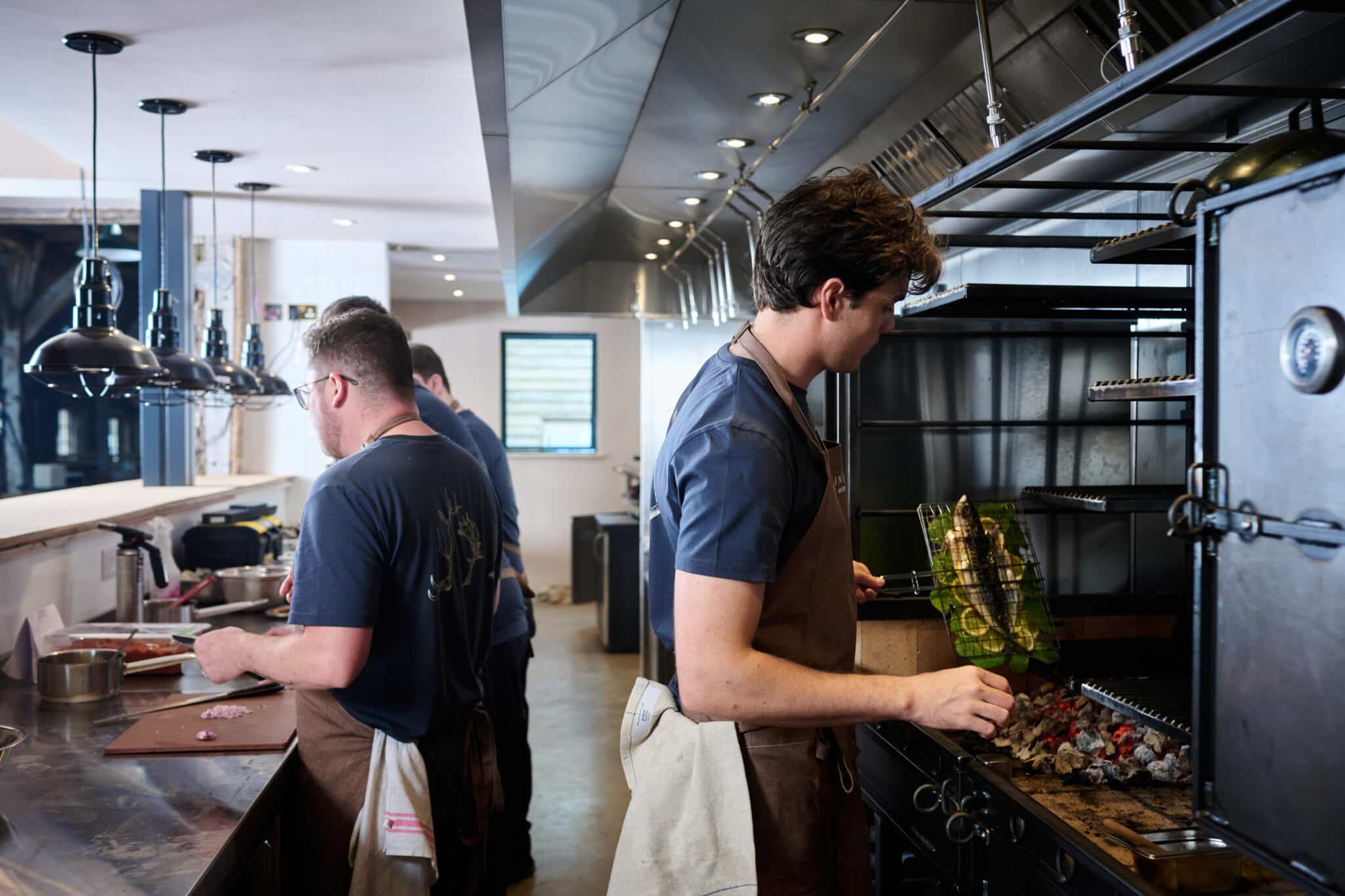
Returning to its wild food roots is something of a refocus. In 2021, the estate launched a regenerative farming project alongside the rewilding, gaining press attention for its arrival into another sustainable food buzzword.
“The reason we decided to do that,” says Tree, “is to demonstrate how rewilding and farming can work hand in hand and how they can benefit each other. We see ourselves as a biodiversity hotspot here, but we really want to have a strong relationship with farmers around us to show how we are their natural ally.’’
Although farm manager Russ Carrington left the project last year, the regenerative farm is continuing and the cattle and chickens are still on the site. The produce will be sold through the shop while the ‘wild’ meat will supply the restaurant.
“In many ways we are providing a life support system for food production,” says Tree. “We are supplying the pollinating insects, the natural pest control, the dung beetles, the soil restoration and restoring the water tables. We are providing a physical buffer from extreme weather events…we want to see Knepp within a wider ecosystem, building linkages throughout the landscape.”
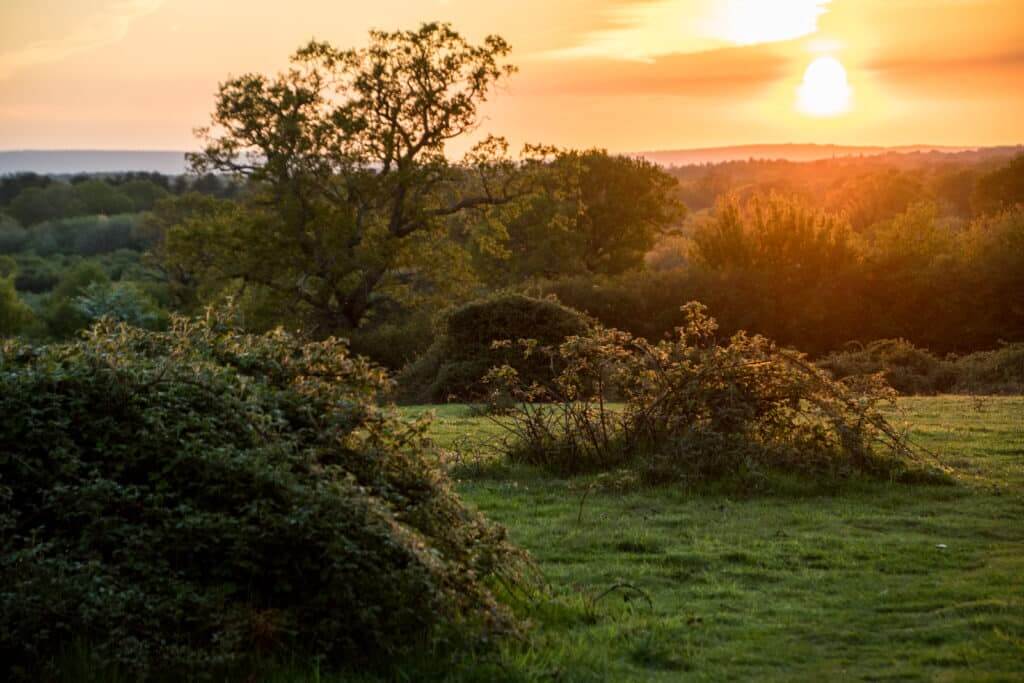
Clearly Knepp continues to aspire to grow its abundance and diversity of nature. However, for Tree, the future lies largely outside of her home’s physical boundaries. “Everyone should be able to walk out of their door and get into areas of functioning nature within minutes,” she says.
“Our goal is now connectivity and spreading the word about rewilding. We now feel that it can’t just be Knepp. We are not going to stop the turtle dove from going extinct just because the numbers are rising here. We need to connect with other areas and have green corridors.”
The Weald to the Waves project, spearheaded by the Knepp Wildland Foundation and other project partners, is part of bringing this vision to life – aiming to establish a 100-mile nature recovery corridor across Sussex, with Knepp at its heart.
While she is arguably the UK’s most famous rewilding pioneer, Tree now aspires to see a landscape in which Knepp melts into a background of normality.
“At the moment we look like a bubble on a map, but one day hopefully we won’t be like that. That’s what we pray for. And also that we won’t need nature reserves because there will be so much habitat available and species will be able to move freely through the landscape again.”
The Knepp Wilding Kitchen opens on Thursday 17 August.

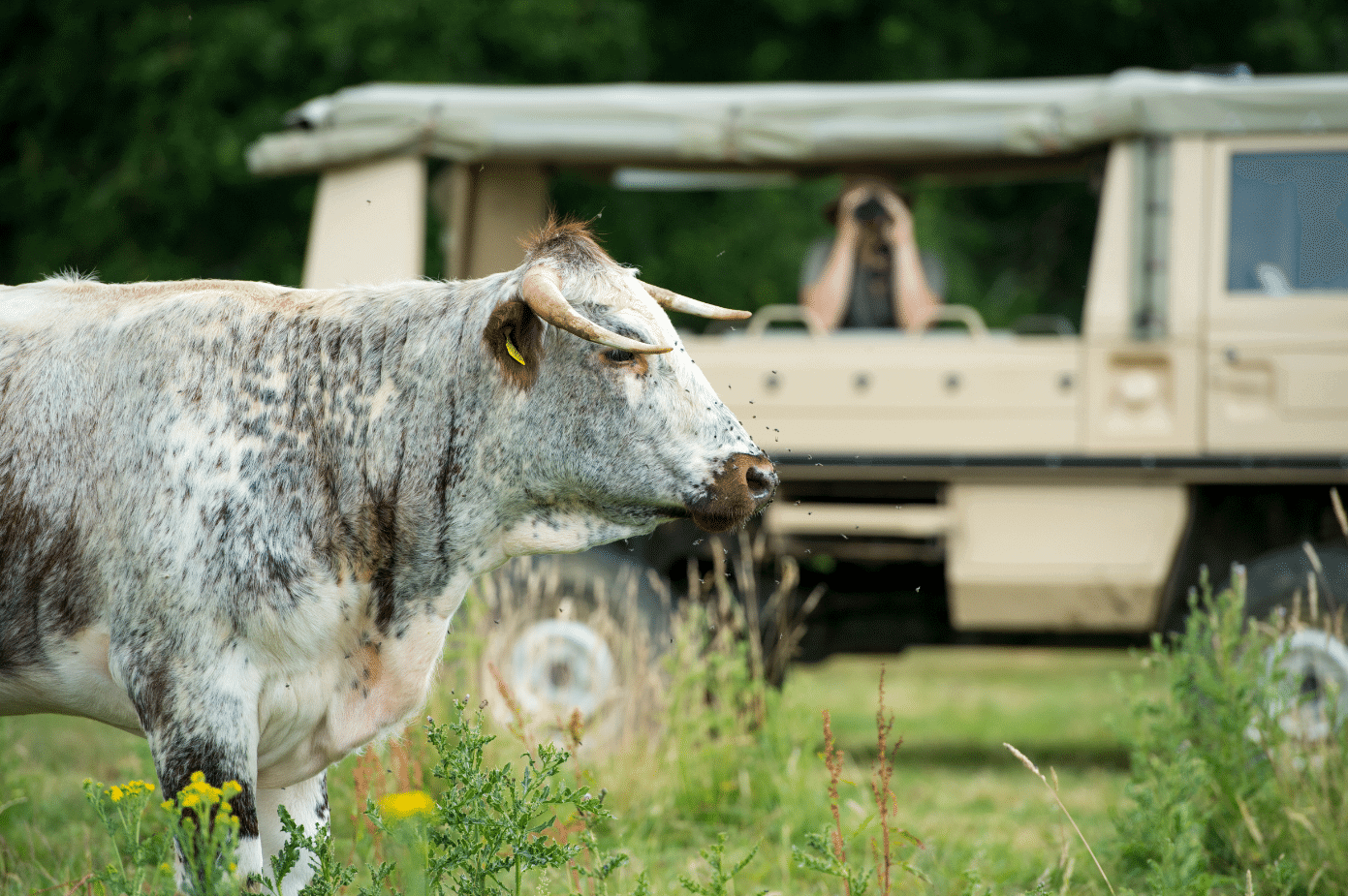







What was absolutely fantastic about the Knepp estate (besides the stated conservational aims) was the use of “ordinary” cattle, pigs, ponies and deer out in the wilds, living as natural a life as possible. These animals can be seen on Knepp Safari trips in giant trucks. It can never be entirely natural because of fences, and lack of apex predation but it’s an excellent try, and the animals are as we never see them – in relationships, friendships, multi-aged societal and family groups, and developing as individuals, which we humans have only just started to dimly perceive and study. It was with great sadness that I learned that Knepp has reverted to type (a farm) and has begun to slaughter its animals for food along with the other thousands of farms out there. Another farm shop. Another farm café. As if the best thing about Knepp animals is that they can feed us humans like the other 10 billion slaughtered animals a year in the UK. There are other ways to control a fenced-in population.
Something was happening there –it was exciting to see these ordinary farm animals living how they’re meant to live, and a new appreciation of, and respect for the animal was being nurtured. This is what Knepp and all of us lose now that their lovely longhorn cattle are just rounded up and transported to abattoirs like any other cattle, and the best thing about their deer is that they can be shot and know nothing about it.
You are wrong to be doing this Knepp – the best thing about these animals is not their flesh.